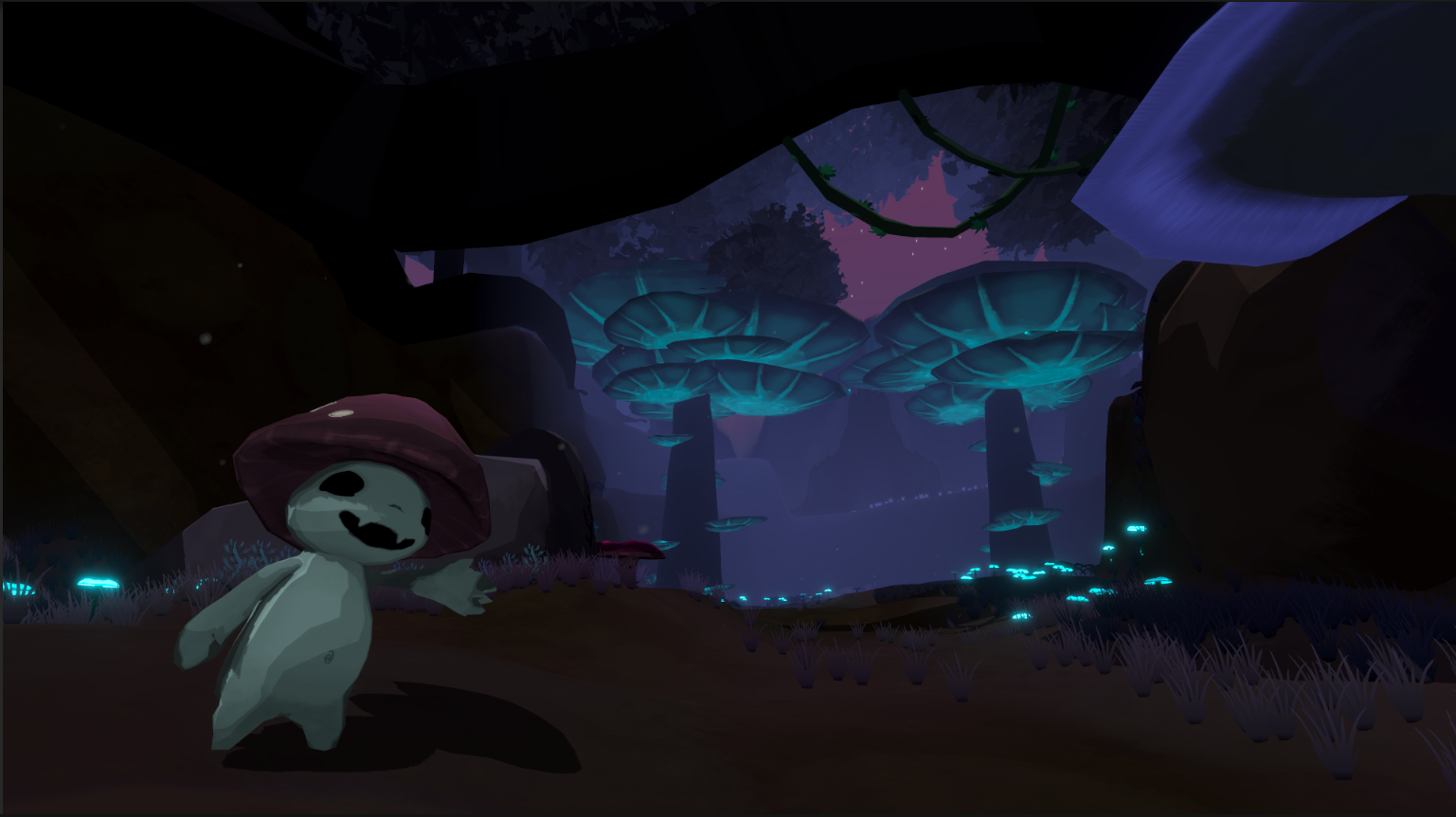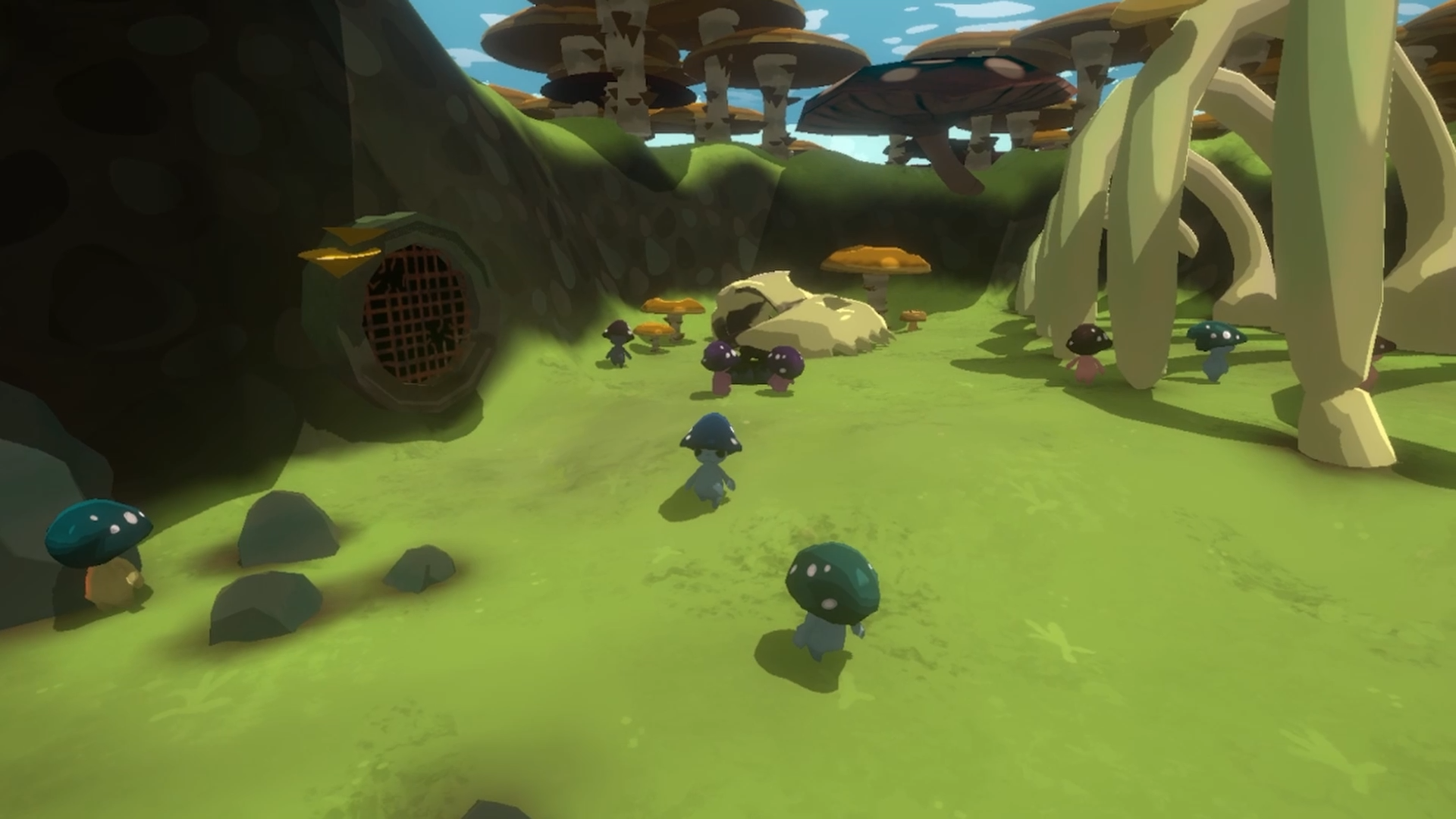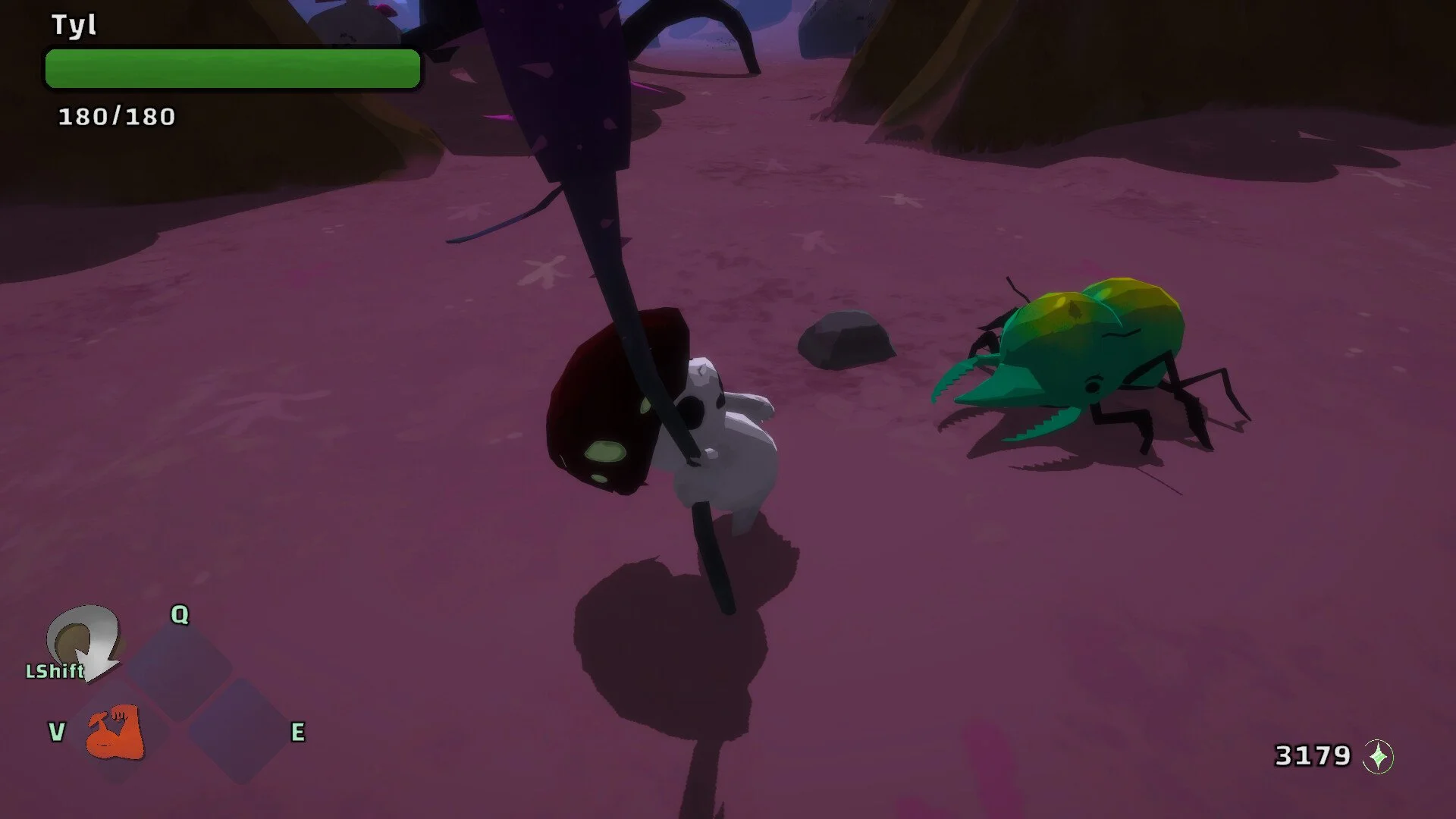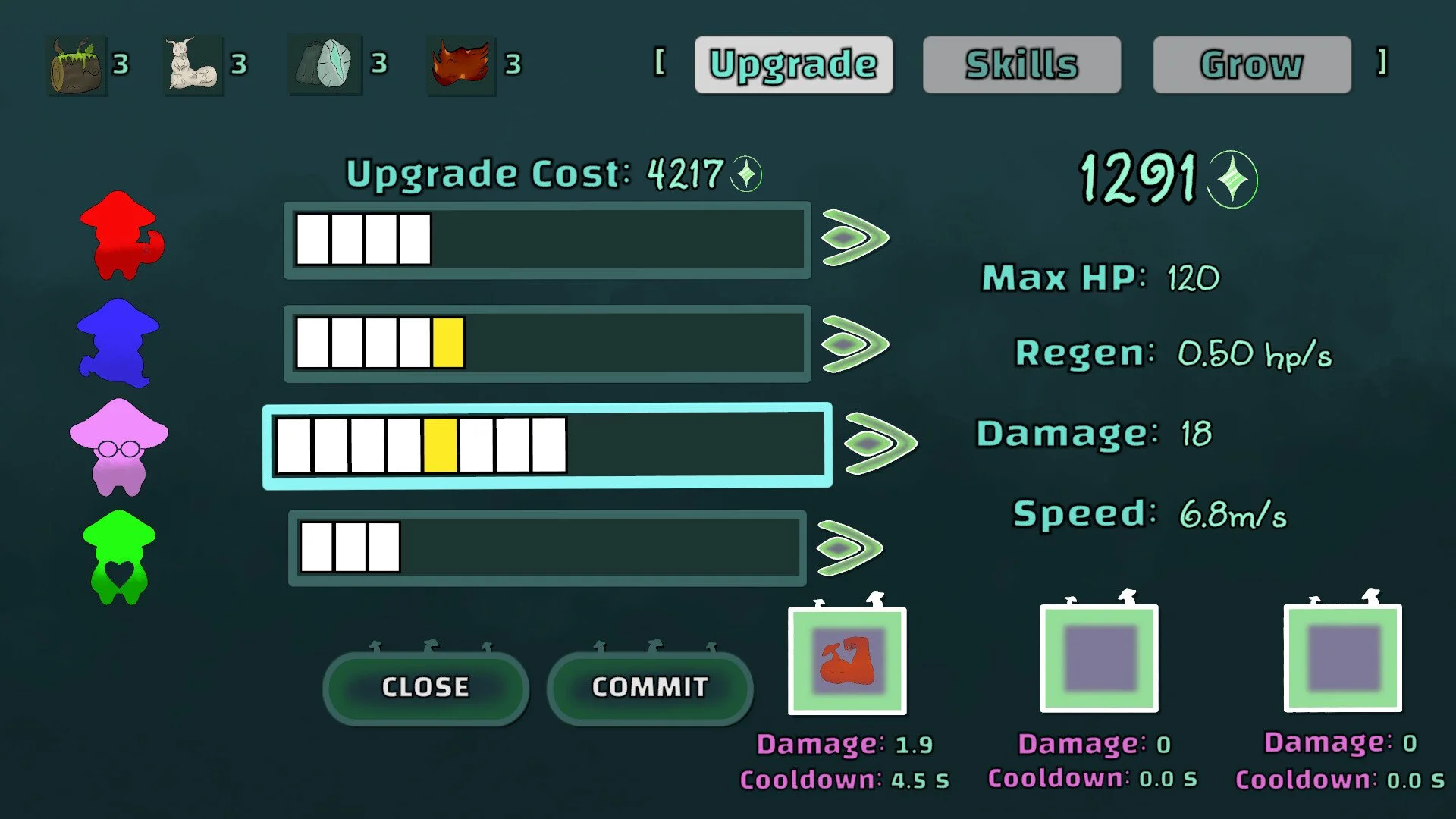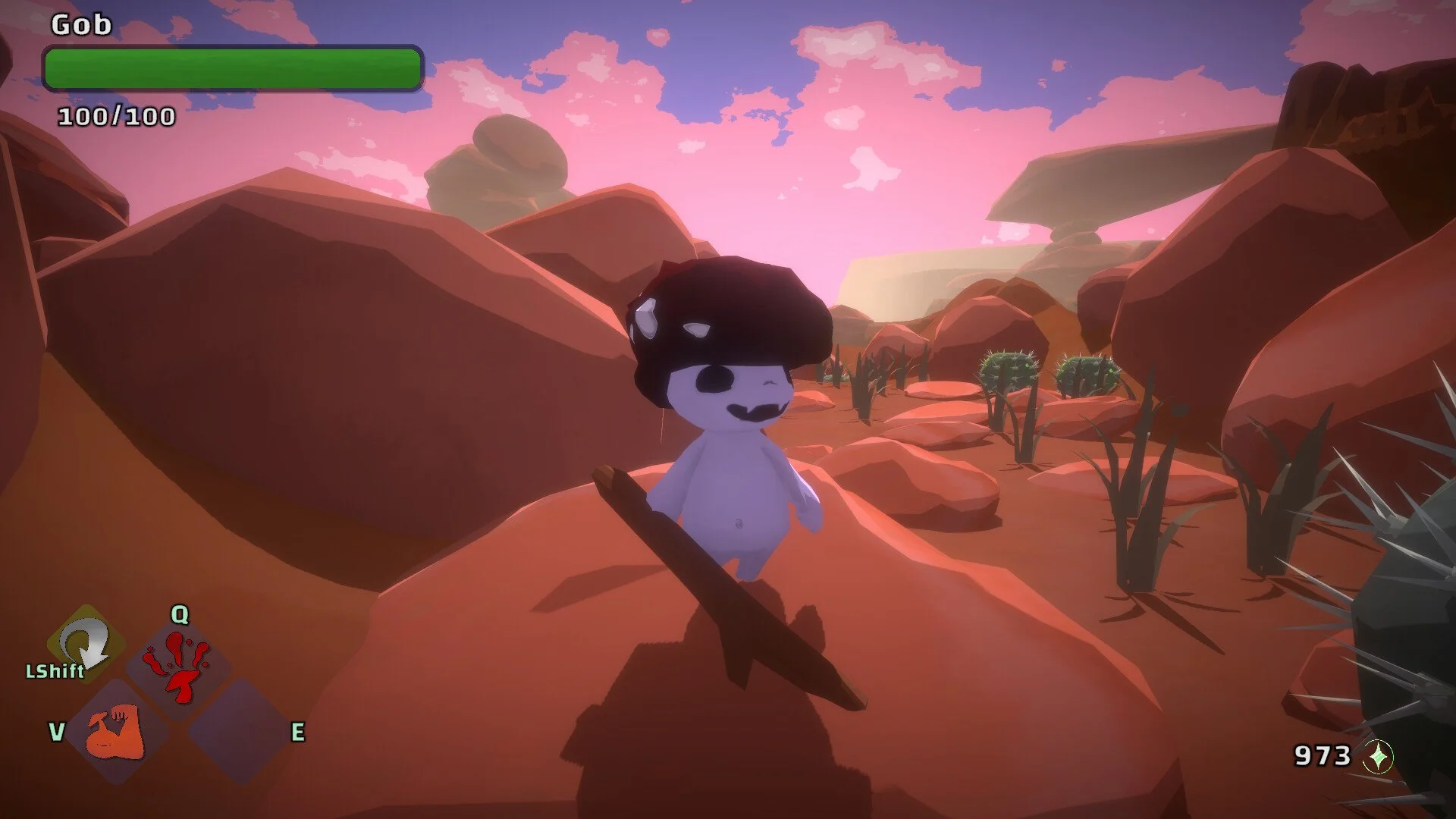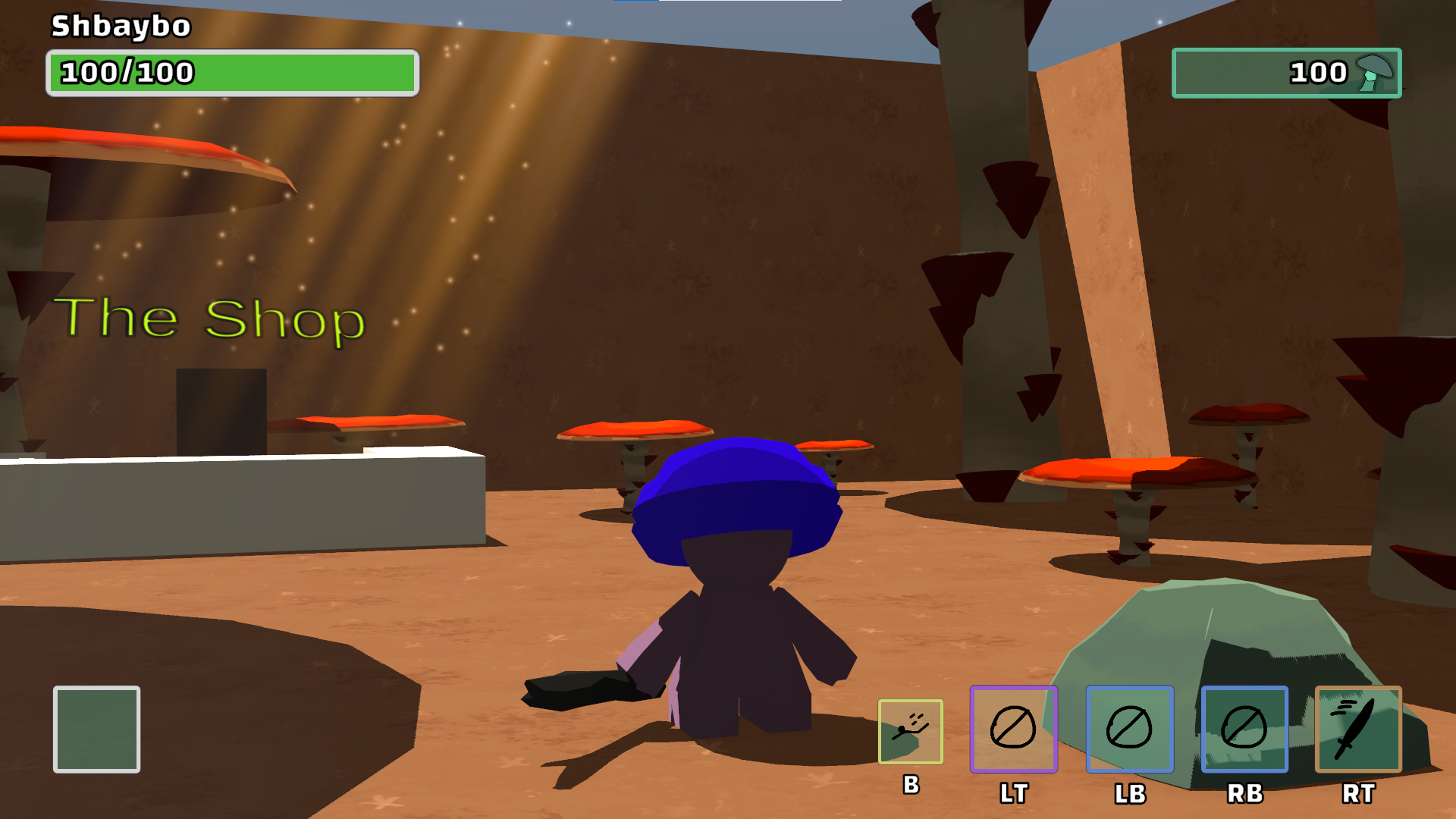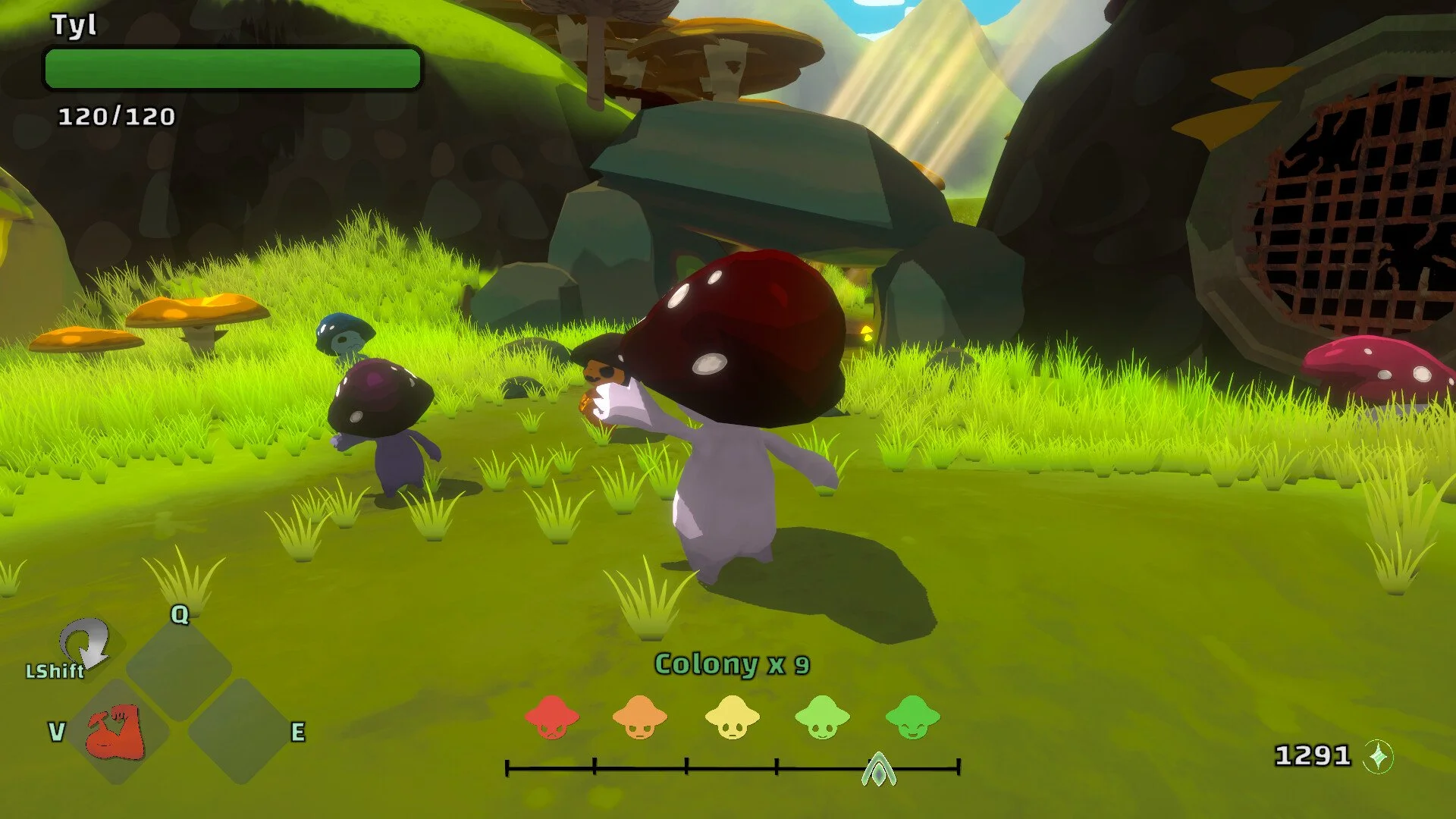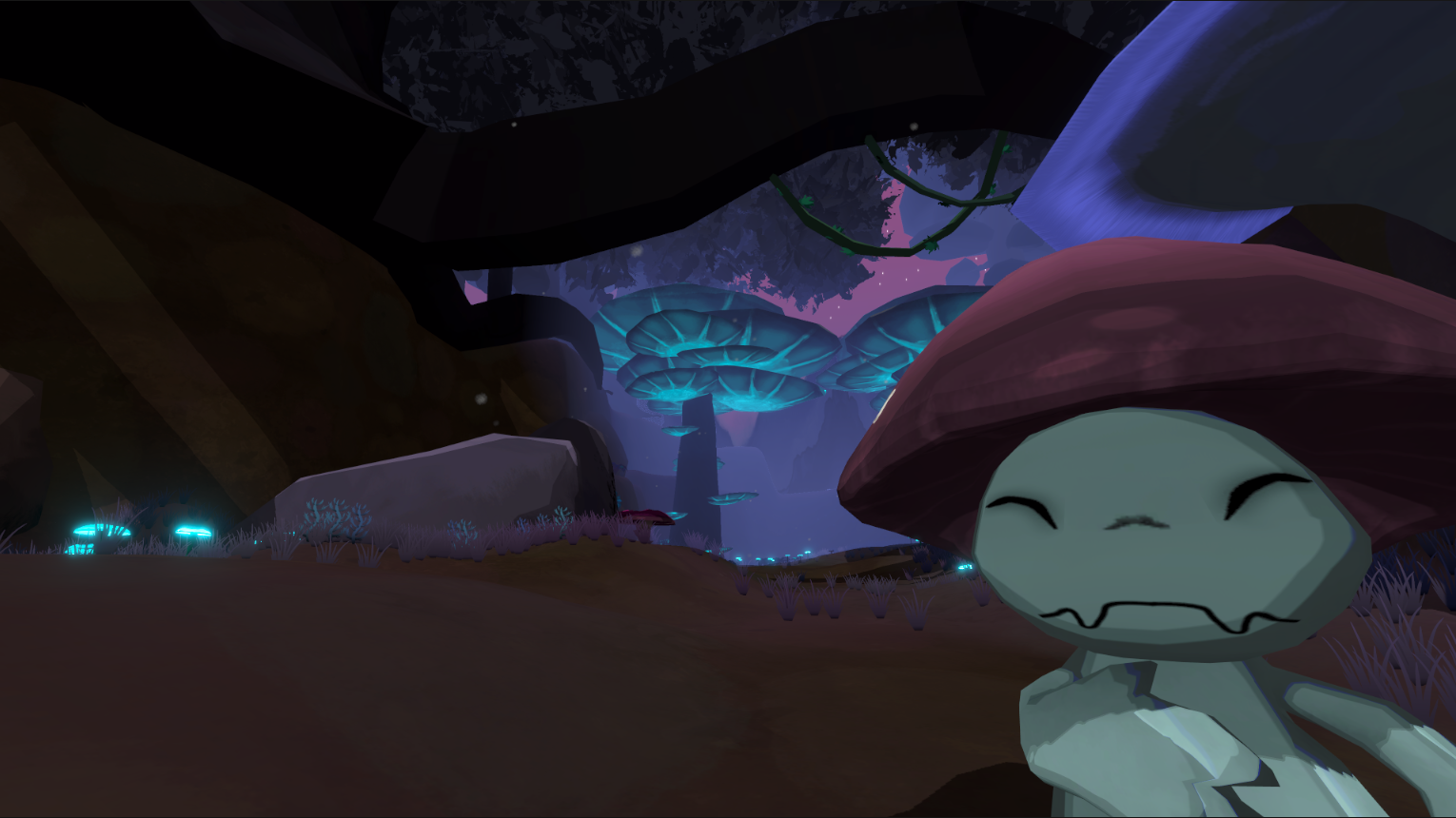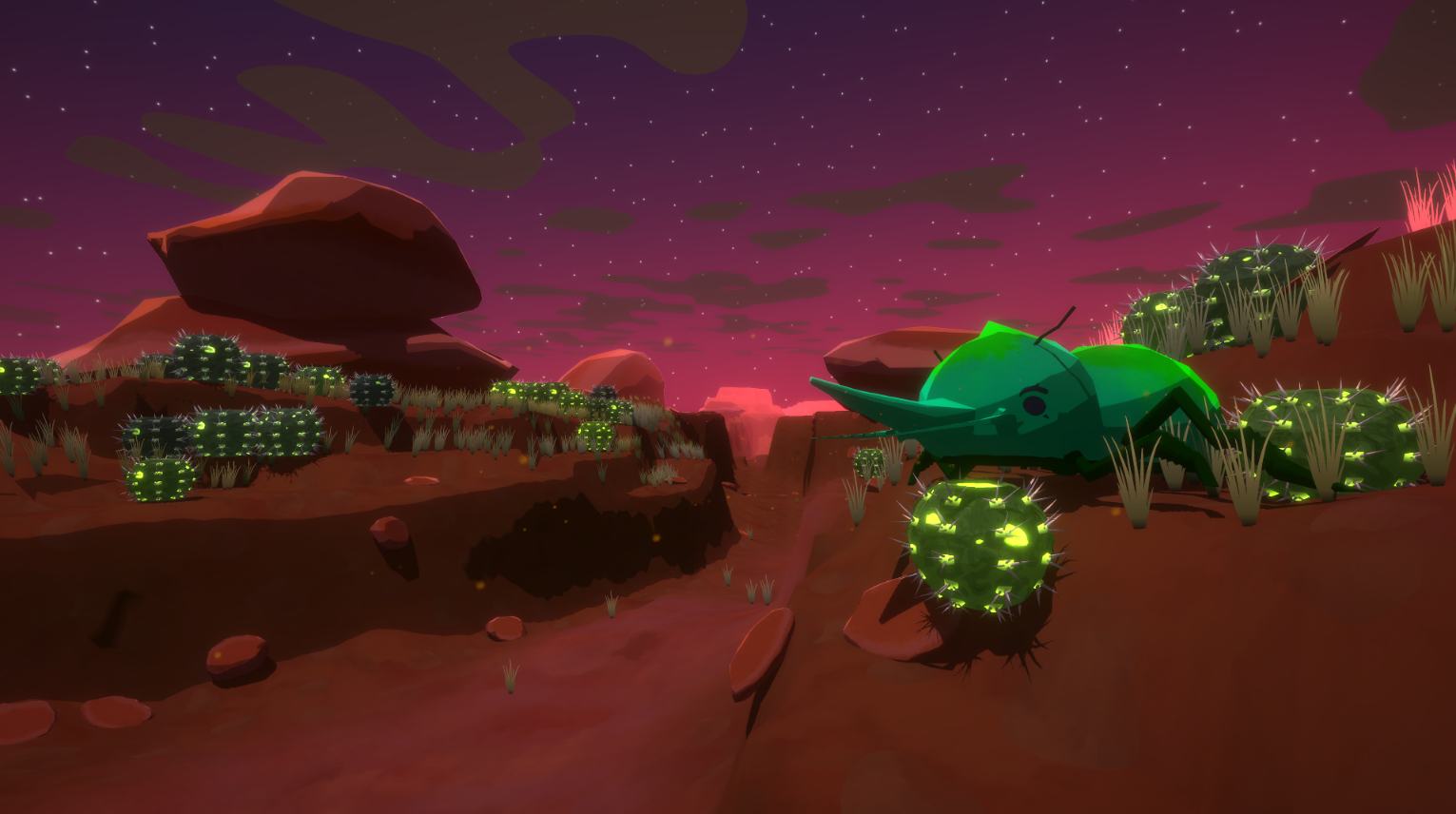
Platform: Windows
Duration: 11 Months
Team Size: 15
Role: Producer
A rogue-like with pet simulator and colony management aspects made in Unity. Players are tasked with undertaking runs as mushroom creatures, called Spores, to acquire nutrients and items to level up and grow more Spores.
My responsibilities were to plan and direct the team, analyze progress, plan sprints and assignments, and work directly with my team members to build the game out. I managed the team using agile methodologies with two-week-long sprints and regular scrum meetings. Most of my work, except for testing, build and repository management, and minor fixes, was done outside of the engine. Further work also included marketing, publishing, and business operations.
Mycelium manages to balance the line between its genres, being divided into two gameplay sections. Players start with a single Spore that they take on runs through the set of three looping environments. On these runs, the player can equip the Spore with weapons they find, temporarily boost their stats, fight through hostile creatures, and find special grow materials. Once back in the hub world, the player can invest their gains in growing and strengthening Spores, which increases the size of their colony and can lead to exciting new events.
With a total of four playable species of Spores, each with a unique ability, 12 other abilities, three tied to each stat, three styles of weapons with modifiers, difficulty settings, and the option to return to the hub after any level, Mycelium can be enjoyed by a wide range of gamers. We put great care into balancing the game and making both aspects of gameplay enjoyable.
Mycelium began development in a somewhat shaky spot. The team, Overgrowth Games, was randomly assembled from an assortment of developers, coders, and artists at varying skill levels and specialties. While initial progress was made, the result was often shaky and subpar. I carefully learned the skill sets and personalities of each team member and worked closely with them to appropriately and efficiently assign work. Pushing the team forward with the help of the creative director saw the team grow in skill and motivation, accelerating past our original goals. We accomplished our initial projections a month ahead of the stakeholder’s expectations, allowing us to add stretch goals like hardcore difficulty and colony happiness.
While initially a school project, a good portion of the team wished to polish up a few features and optimize performance beyond the scope of the class. We formed Cellar Bog to accomplish this, as well as publish the game to Steam. We operated as an independent studio for three months, making the game more polished, putting together marketing materials and campaigns, and bug testing and fixing, successfully publishing to Steam in July of 2024.
